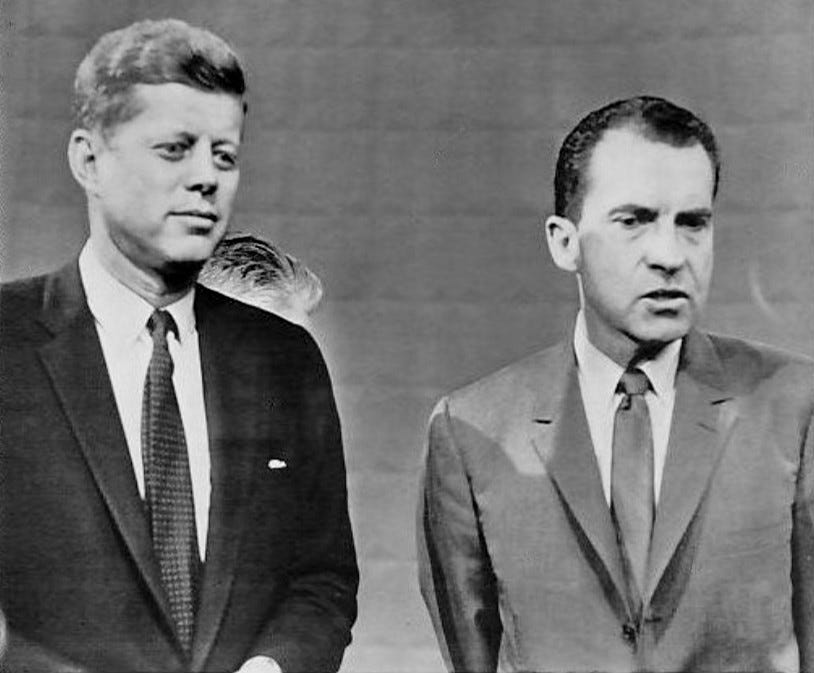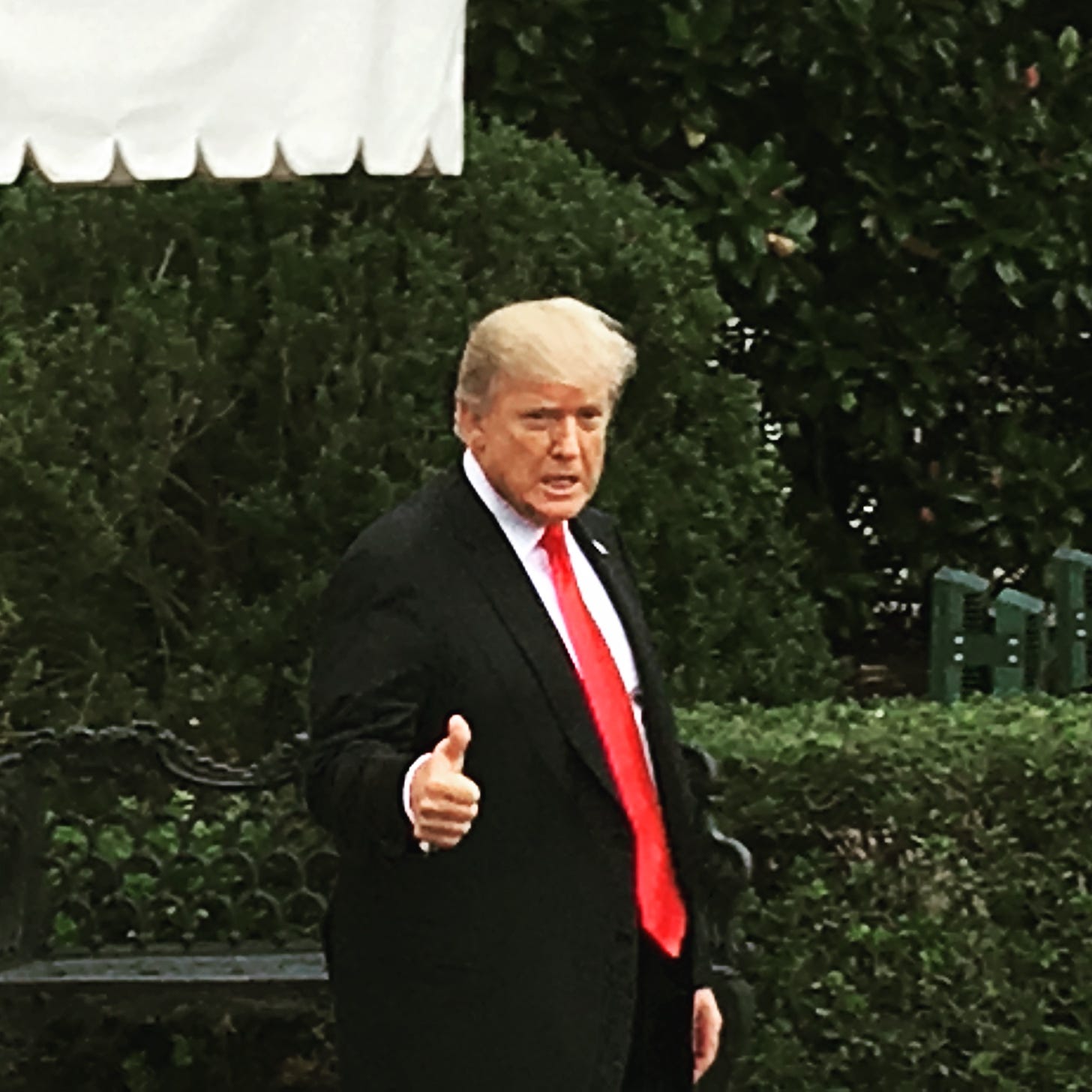Authenticity, Charisma Count for US Presidential Candidates
Charisma is more than being telegenic — it’s effective messaging
WHITE HOUSE — In the early days of the United States, a candidate’s charisma did not matter as much in a presidential election. But in the era of electronic and social media, whether a candidate can connect individually with voters can determine whether he or she sits in the Oval Office.
The video generation began with the photogenic Democrat, John F. Kennedy, beating an unglamorous Republican, Richard Nixon, in the 1960 election. Nixon, however, was elected eight years later, defeating the Democratic Party’s nominee, the humdrum Hubert Humphrey.
Political novice Donald Trump’s upset victory over Hillary Clinton in 2016 is attributed to some degree by political analysts to the Democrat’s failure, despite her experience as first lady, U.S. senator and secretary of state, to connect with voters.
“That was my problem with many voters: I skipped the venting and went straight to the solving,” Clinton acknowledged in her book, What Happened.
A U.S. presidential candidate’s charisma and the country's economic performance interact in predicting whether a leader is selected, according to a 2015 academic paper.
The respective approaches of President Joe Biden and his predecessor, Trump, to retail politicking helped each win the U.S. presidency and could give one of them the top job a second time in next year's election.
After speeches, Biden sometimes works the crowd, posing for selfies and giving hugs.
Then there is Trump’s signature exit with his "thumbs up" gesture, the fist pumps and dance moves to the 1978 disco hit YMCA.
Trump boasts about his deep connection with his supporters.
“I could stand in the middle of Fifth Avenue and shoot somebody, and I wouldn’t lose any voters,” Trump told a January 2016 campaign rally in the state of Iowa.
Trump has not shot anyone but is facing dozens of felony charges for crimes allegedly committed before, during and after his term in office, a career-killer for any conventional politician on the national stage. Polls, however, show him far ahead of the more than a dozen Republicans challenging him for the 2024 presidential nomination.
For those who study leadership, charisma is more than just being telegenic. Successful politicians excel at messaging.
“You feel like you’re one of them, and they are one of you, right? And so, kind of creating that collective identity, propelling values — all of those things can be done by framing the message, providing the substance and articulating in a way that's engaging and present,” said Ulrich Jensen of Arizona State University’s School of Public Affairs.
Jensen’s recent research demonstrates a connection between the charisma of U.S. governors and constituents following their pleas to mitigate behavior during the COVID-19 pandemic.
By shaking hands, gesturing and repeating signature lines, presidential candidates amplify their messages to the wider world, according to Stephen Farnsworth, director of the Center for Leadership and Media Studies at the University of Mary Washington.
“The vast majority of people who are looking at these presidential candidates will never meet any of them,” noted Farnsworth, a political science professor. “They will simply decide based on what they see on the media, whether this candidate or that candidate appeals to them more.”
Trump and Biden, the Democratic Party’s incumbent president, provide lessons in communication for those seeking to challenge them.
“You have to be genuine. I think that what you see with both of these men is exactly who they are,” said Farnsworth.
Such perceptions of inauthenticity bedevil the campaign of Florida Governor Ron DeSantis, who had been considered the most likely Republican candidate to dethrone Trump.
Awkward politicians cannot learn to be authentic, but they can be coached on what to emphasize, Trump’s first White House press secretary, Sean Spicer, told me during a VOA interview.
“One of the things that sometimes politicians do is, if they get nervous about certain qualities, and so they're afraid of leaning into them,” said Spicer. “And I think what Trump did was, he just went with his gut a lot more about what he thought and what he believed.”
“I completely agree [authenticity cannot be faked],” said Jensen. “An intuitive premise of charisma is [that] charisma isn't much without authenticity. So, you can fool people using these tactics. But you can only do it for so long.”
Biden bets on his audiences believing his promises that he is authentic.
“I never, ever tell you anything I don’t mean. I never tell you anything I don’t believe, even when I know it’s not popular,” said Biden as a presidential candidate in South Carolina during the 2020 campaign.
“Creating that identification through showing people that you care and you’re willing to listen to their stories is one of the things Biden is known for. And what he does well is then reuse and repurpose those stories for the storytelling aspect and his own rhetoric,” said Jensen. “It's an incredibly powerful way to help create that identification [with voters].”
Even Spicer is willing to acknowledge “Biden is very good one-on-one with folks,” but contends Trump “is a little more genuine.”
“For the candidates who aren’t named Donald Trump or Joe Biden, I think the main lesson here is to be who you really are,” said Farnsworth, author of the book, Presidential Communication and Character. “If you try to present yourself as something less than fully genuine, the modern media environment detects that, and people see it.”







